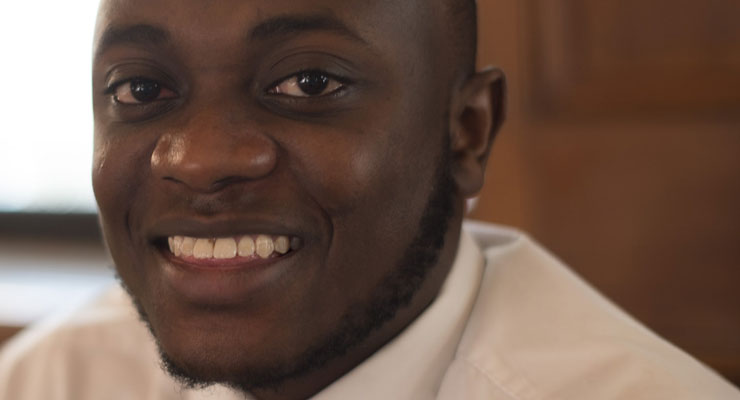
Michel Chikwanine is a long way from where he grew up in eastern Democratic Republic of Congo, but not from the memories of war. They haunt him every night — ever since he was captured by rebels in the city of Beni at the age of five.
Chikwanine’s father had an imposed an early-evening curfew, but Chikwanine disobeyed it to play soccer with his friends.
“It was during that time while we were playing when we saw a truck with military personnel racing toward the field,” he recalls. “They surrounded the field, and eventually grabbed all the kids and put us into a truck.”
The militants drugged Chikwanine and the other kids, then trained them to use firearms. But that wasn’t all …
“I started to cry and begged them again to let me go home. Instead they forced me to kill someone … they forced me to kill my best friend … as a way of being entered into the group, and I feel guilty sometimes that I survived and he didn’t,” he admits.
Chikwanine managed to escape. But more violence followed. His family became casualties of DRC’s ongoing unrest that has killed and displaced millions over the past two decades.
His father, a human rights activist, was kidnapped. Then soldiers came to his house and grabbed his mother and two sisters.
“…and they started to rape them. And they held me to the wall and told me to watch what was happening to send a message to my father,” he recalls.
Today, Chikwanine talks about his experience to audiences around the world — including during a recent peace conference here in Normandy. His family fled to Uganda. But then his father died, apparently from poisoning. Soon after, the remaining family was granted asylum in Canada.
France’s northwestern Normandy region is a good place to talk about war. Hundreds of thousands of soldiers died here during World War II. Most were barely past childhood.
The Democratic Republic of Congo has one of the world’s biggest populations of child soldiers. UNICEF says up to 30,000 children are forced to serve armed groups as soldiers, sexual slaves and laborers.
In DRC, clerics are spearheading the fight for peace, and demanding that long-delayed elections be held.
Bishop Fulgence Muteba, who attended the Normandy peace forum, is one of them. From his diocese in southern DRC, he also has tried to help former child soldiers.
Bishop Muteba said they were traumatized, so battered by the experience they almost had no feelings. So familiar with violence, their lives were no longer worth living. Many were left to cope on their own. Some committed suicide. Others returned to violence.
Chikwanine says even those who make it are forever scarred.
“My fear is that we’ve become a community that normalizes war, but doesn’t normalize peace. And that is what is happening in the Congo, specifically.”
He hopes that peace, which returned to Normandy after the war, can return to the DRC.
Leave a Reply